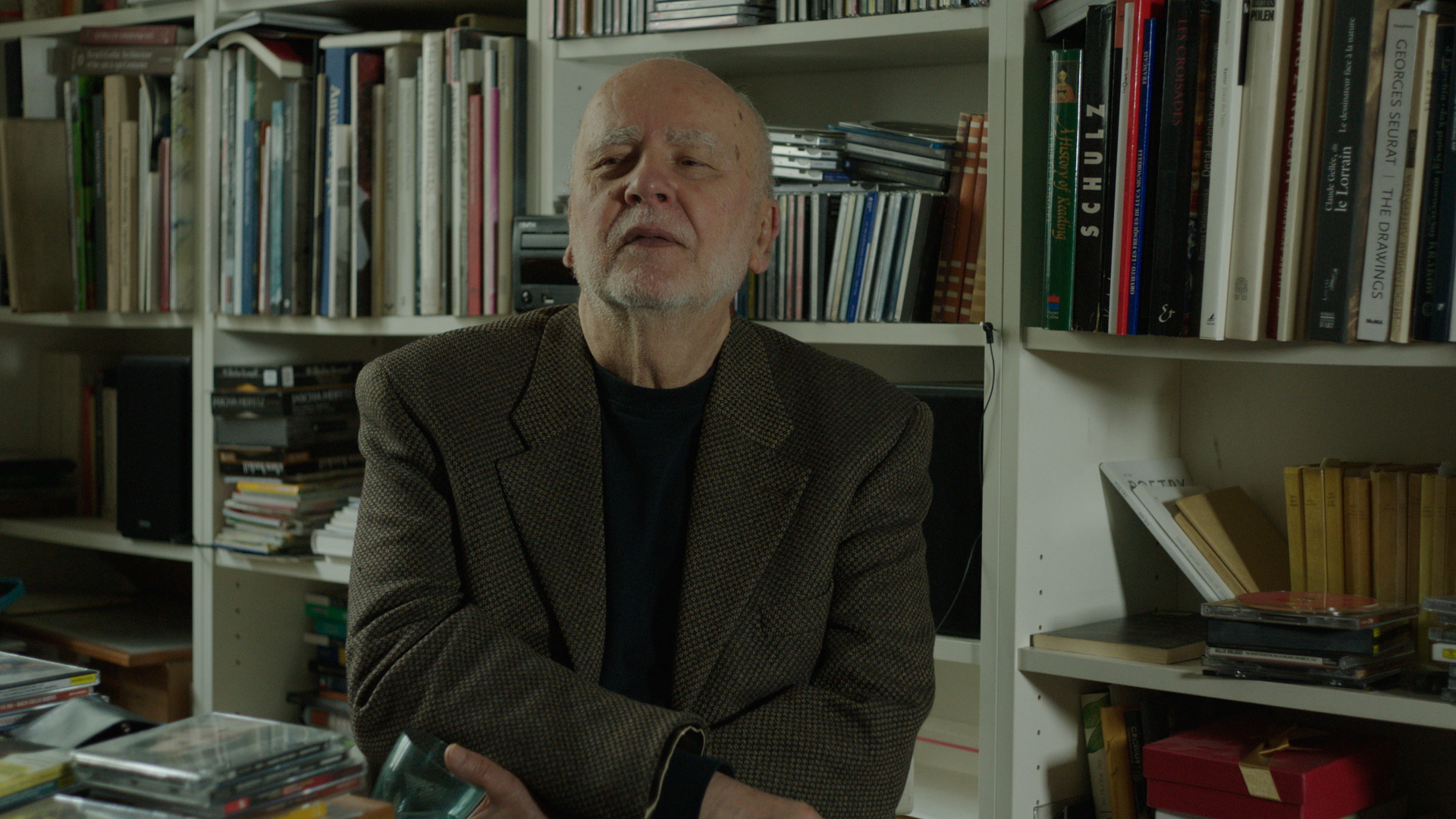NEXT STORY

Protest poetry and me
RELATED STORIES

NEXT STORY

Protest poetry and me
RELATED STORIES


|
Views | Duration | |
|---|---|---|---|
| 21. Anti-Semitism raises its ugly head | 68 | 02:30 | |
| 22. Circle of Young Writers collective is formed | 45 | 05:52 | |
| 23. The blossoming of Polish culture | 54 | 01:44 | |
| 24. Three decades of extraordinary culture | 55 | 00:56 | |
| 25. Writing is my element | 49 | 03:53 | |
| 26. Poetry is not theory | 46 | 03:35 | |
| 27. Paying the price of actively protesting against the system | 52 | 03:31 | |
| 28. Seduced by Warsaw's revolutionary spirit | 50 | 02:19 | |
| 29. Protest poetry and me | 45 | 05:05 | |
| 30. The sense of seclusion in Berlin | 43 | 02:24 |


At the time I thought – and I think this still – that Warsaw and Kraków are two different modi of existence – Warsaw is bolder, faster. In Warsaw, there was an uprising but not in Kraków. In Kraków, everyone goes home in the evening. Kraków has the exceptionally fine publication, Tygodnik Powszechny. But those knife-edge decisions are taken in Warsaw rather than here. So I was a citizen of Kraków who had been seduced by Warsaw, primarily by Adam and Basia with whom I've now been friends for many years although there have been interruptions – not in our friendship because a friendship can never be interrupted – but in our meetings, in our contact with one another. I mention this because if we hadn't me that time, then firstly Halina Mikołajska would never have come to see me; she was close to Adam Michnik then and knew how to find me. My life would undoubtedly have been very different. I don't know if it would have altered the way I write, probably not but under the circumstances, the external circumstances, my fate might have been different since from that moment, I could no longer publish my books, I was banned, black-listed by the state censor. I was allowed to publish my work in Catholic publications so following that Letter of 59 my sketches called Drugi oddech was published by Znak after which I came to work on the monthly publication, Znak. But I wasn't publishing as much poetry although I did manage to get some out in the underground publications which very quickly arose and had a huge circulation. One of them was Zapis – there were countless books or rather booklets because there were, initially, huge technical limitations in this underground movement.
Wtedy myślałem, że – i dalej tak myślę – że Warszawa i Kraków to są te dwa różne modusy istnienia – Warszawa jest odważniejsza, szybsza. W Warszawie jest powstanie, w Krakowie nie ma. W Krakowie wszyscy wracają do domu wieczorem. W Krakowie jest Tygodnik Powszechny wspaniały, znakomite pismo. Ale takie decyzje na ostrzu noża to nie, raczej w Warszawie. Więc ja byłem jakby krakowianinem uwiedzionym przez Warszawę, przez tą... głównie przez tą... przez Adama i Basię, z którymi od lat się przyjaźnię, z różnymi... bywały i przerwy – nie w przyjaźni, bo nigdy przerwy w przyjaźni – w spotykaniu się, widywaniu się. I mówię o tym dlatego, że gdyby nie to spotkanie, to po pierwsze, Halina Mikołajska by do mnie nie przyszła, bo ona wtedy była blisko z Adamem Michnikiem i wiedziała jak mnie odnaleźć, i zapewne moje życie byłoby zupełnie inne, gdyby... to znaczy nie wiem, czy bym pisał inaczej. Zapewne nie, ale jednak w sferze wypadków... wypadków zewnętrznych, losu pewnego byłoby inne, bo od tego... od tej chwili nie mogę publikować książek, mam zakaz publikacji. Trafiam na taką... na czarną listę cenzury. Mogę, mogę publikować w wydawnictie katolickim, tak że po... już po tym Liście 59 wychodzi jeszcze taki mój zbiór szkiców, który się nazywał Drugi oddech i to wydał Znak, a potem właśnie pracuję w miesięczniku Znak, ale już na przykład z wierszami gorzej, ale publikuję trochę wierszy w obiegu podziemnym, bo powstaje bardzo szybko właściwie nieomal masowy obieg podziemny, który staje się... Powstaje pismo Zapis, jest... są niezliczone książki, a raczej głównie książeczki, bo to na początku przynajmniej były duże ograniczenia, no, techniczne w tym ruchu podziemnym.
Adam Zagajewski (1945-2021) was a Polish poet, novelist, translator and essayist. He was awarded the 2004 Neustadt International Prize for Literature, the 2016 Griffin Poetry Prize Lifetime Recognition Award and the 2017 Princess of Asturias Award for Literature. He is considered as one of the leading poets of the Generation of '68 or the Polish New Wave (Polish: Nowa fala) and is one of Poland's most prominent contemporary poets.
Title: Seduced by Warsaw's revolutionary spirit
Listeners: Andrzej Wolski
Film director and documentary maker, Andrzej Wolski has made around 40 films since 1982 for French television, the BBC, TVP and other TV networks. He specializes in portraits and in historical films. Films that he has directed or written the screenplay for include Kultura, which he co-directed with Agnieszka Holland, and KOR which presents the history of the Worker’s Defence Committee as told by its members. Andrzej Wolski has received many awards for his work, including the UNESCO Grand Prix at the Festival du Film d’Art.
Tags: Warsaw, Kraków
Duration: 2 minutes, 19 seconds
Date story recorded: March 2018
Date story went live: 25 April 2019